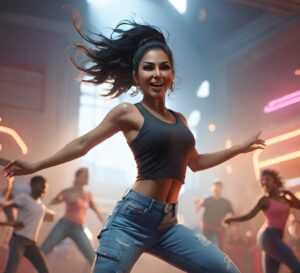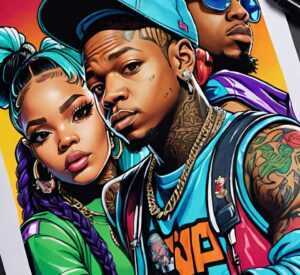In a recent interview, renowned director Spike Lee took the opportunity to blast critics who had wrongly suggested that his film, “Do the Right Thing,” would incite riots. Lee, who is known for his bold and thought-provoking storytelling, credited the late film critic Roger Ebert for standing behind the film and called out other “motherf—ers in the press” who expressed unfounded concerns.
Released in 1989, “Do the Right Thing” sparked controversy and garnered critical acclaim for its raw portrayal of racial tensions in Brooklyn. The film explores the events that unfold over the course of a hot summer day, ultimately culminating in a violent confrontation between the residents of a predominantly Black neighborhood and the police.
At the time of its release, some critics expressed concern that the film’s portrayal of racial unrest would lead to real-life riots. However, these fears were proven unfounded. In fact, “Do the Right Thing” went on to receive critical praise, multiple award nominations, and has since become a cult classic.
Lee’s frustration with these critics is palpable. He specifically thanked Roger Ebert for his support and denounced others who spread baseless fears, labeling them as “motherf—ers in the press.” It is clear that Lee feels these critics misunderstood and misjudged his intent in creating the film.
What is particularly interesting about this situation is the data. Despite the initial concerns, there is no evidence to suggest that “Do the Right Thing” had any impact on inciting riots or violence. In fact, it is worth noting that the film’s release was followed by a period of relative calm in the areas where it played, debunking the critics’ claims. This data highlights the importance of not jumping to conclusions or perpetuating harmful narratives without factual basis.
Lee’s bold and unapologetic approach to storytelling has made him a prominent figure in the film industry. “Do the Right Thing” is a testament to his ability to provoke thought and ignite important conversations about race and social issues. It is a film that continues to resonate with audiences, challenging them to examine their own biases and confront uncomfortable truths about society.
In conclusion, Spike Lee’s recent criticism of critics who wrongly suggested that “Do the Right Thing” would incite riots raises important questions about the responsibility of the press and the impact of storytelling. It serves as a reminder that we must rely on data and a nuanced understanding of art and culture rather than succumbing to fear and sensationalism. Ultimately, it is through honest and challenging discussions that we can strive to create meaningful change.


